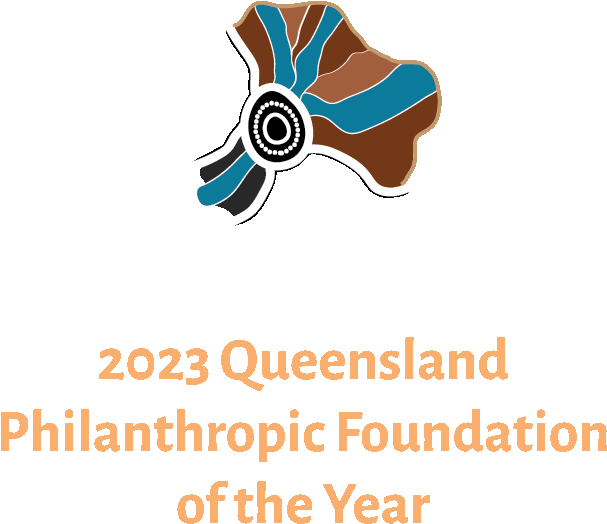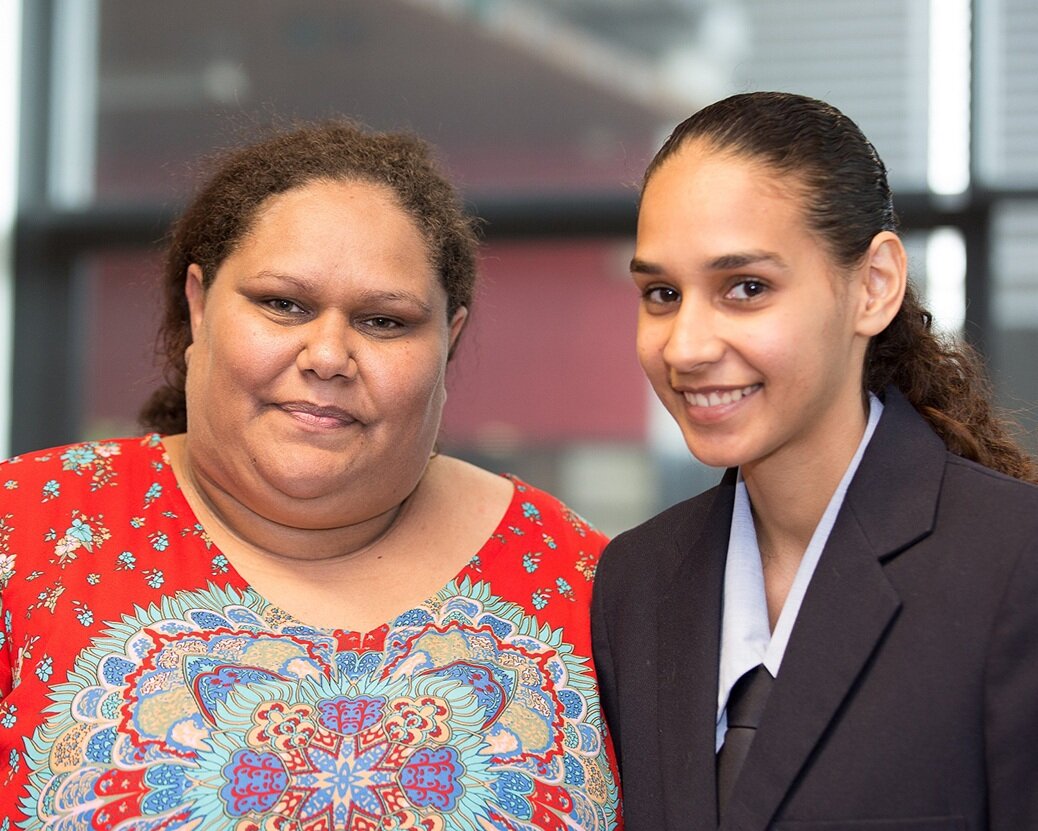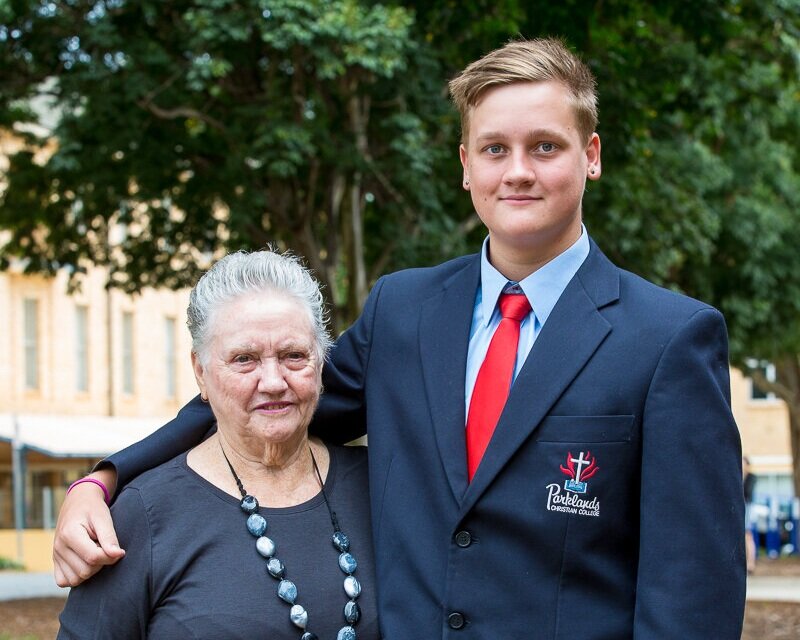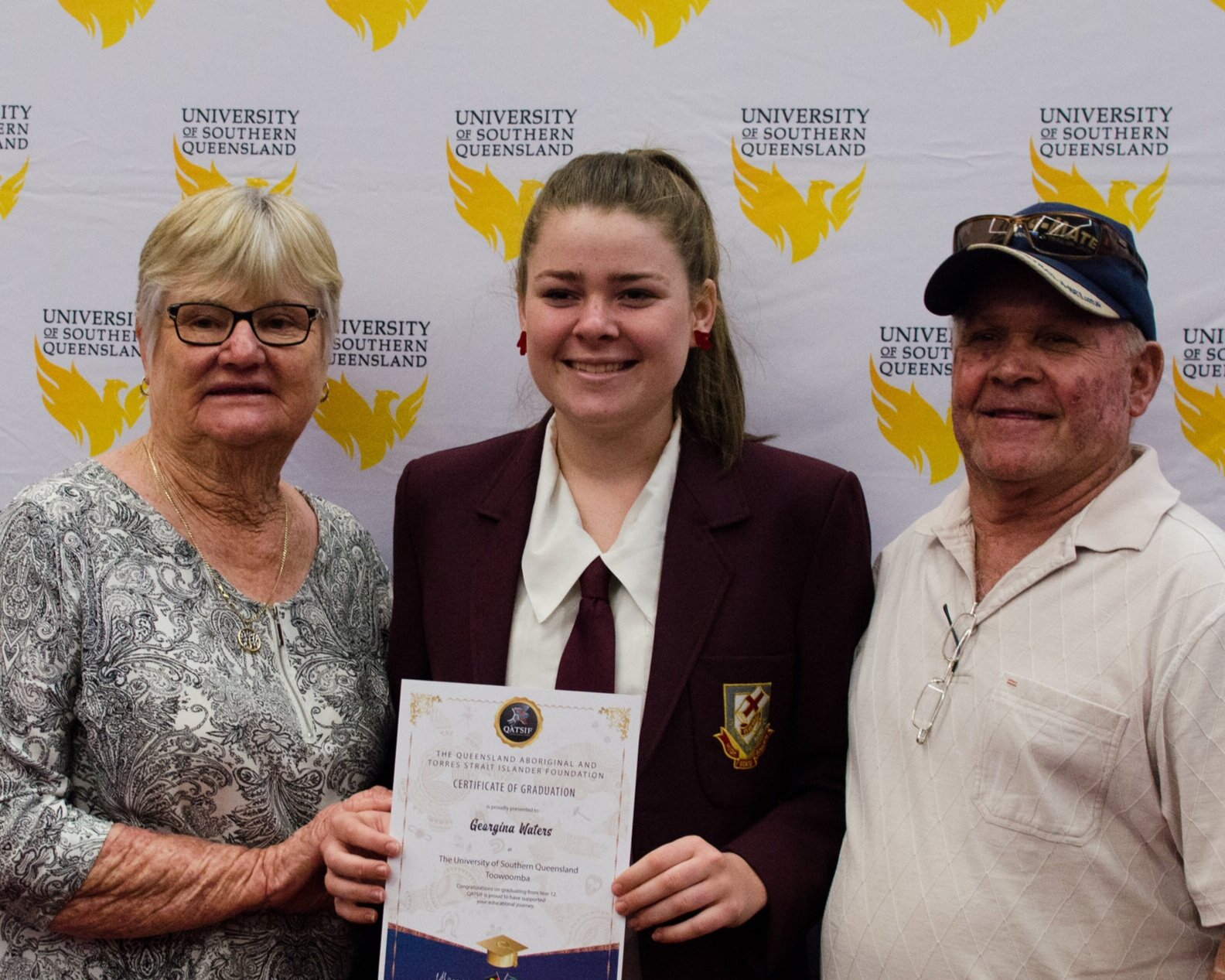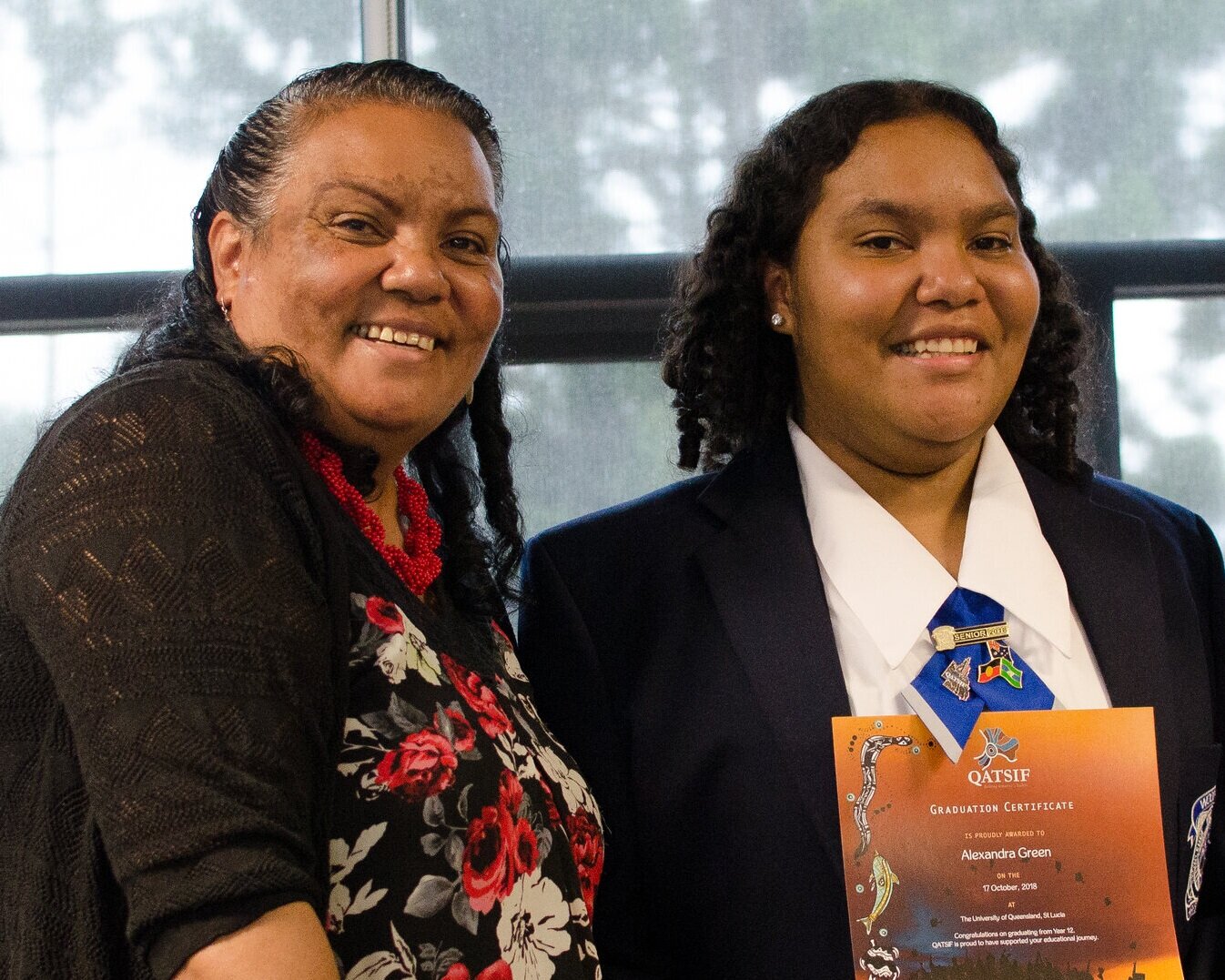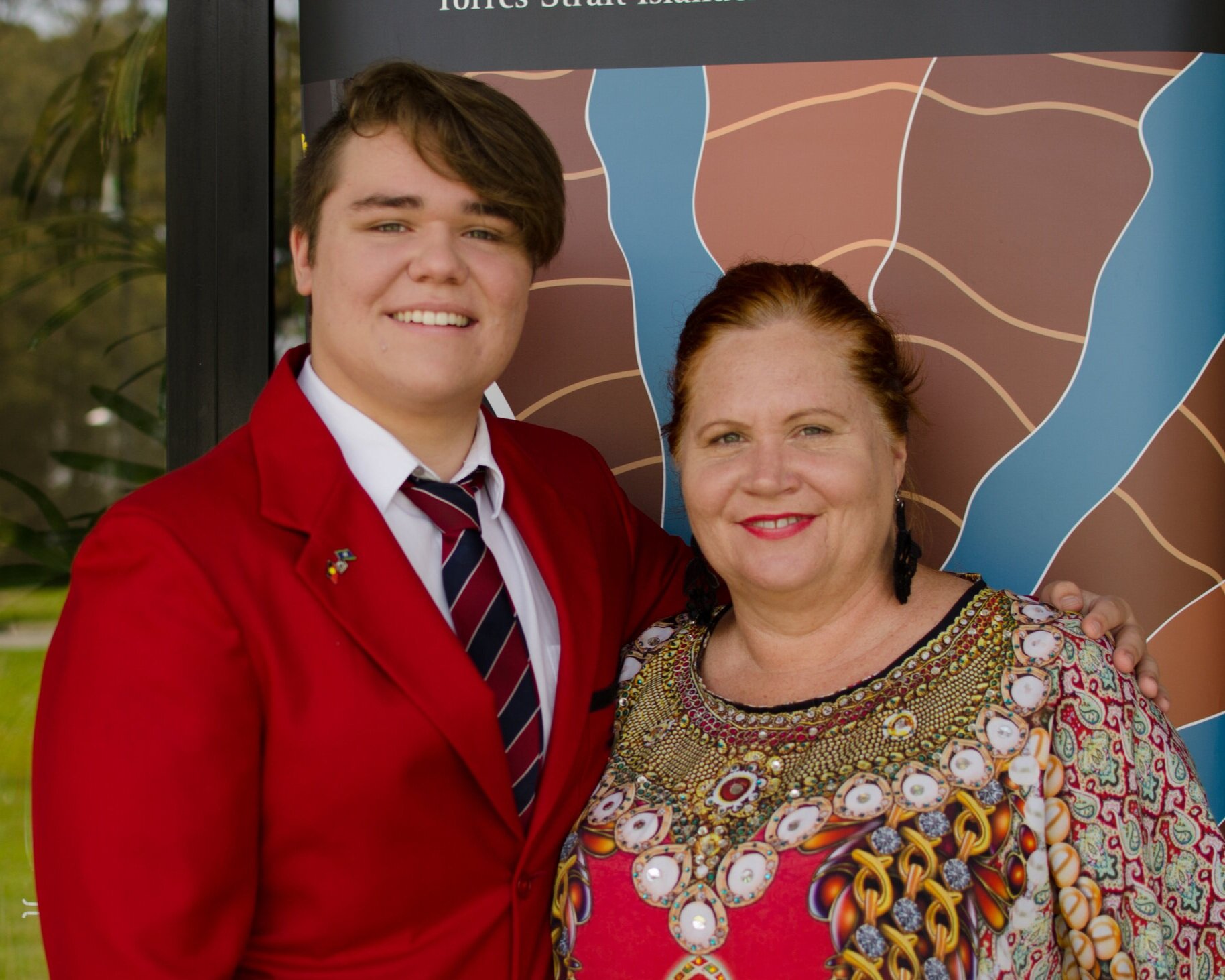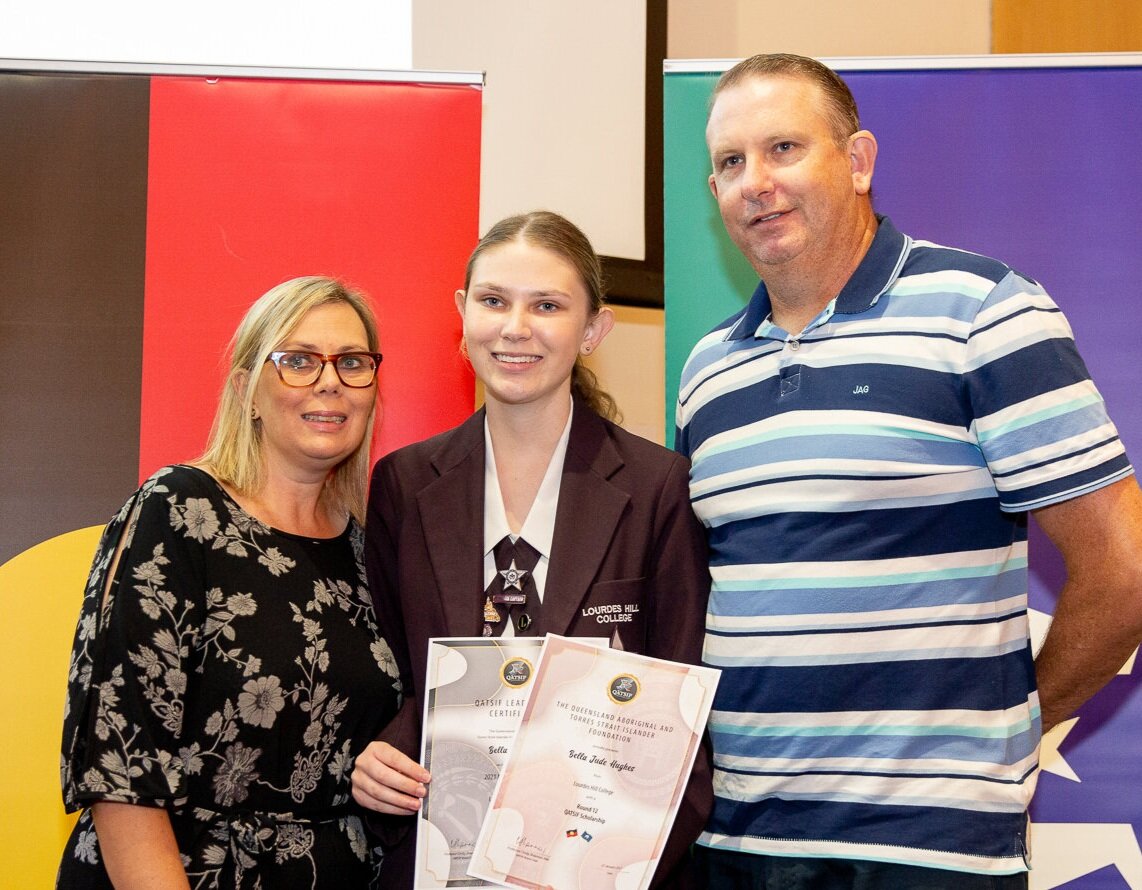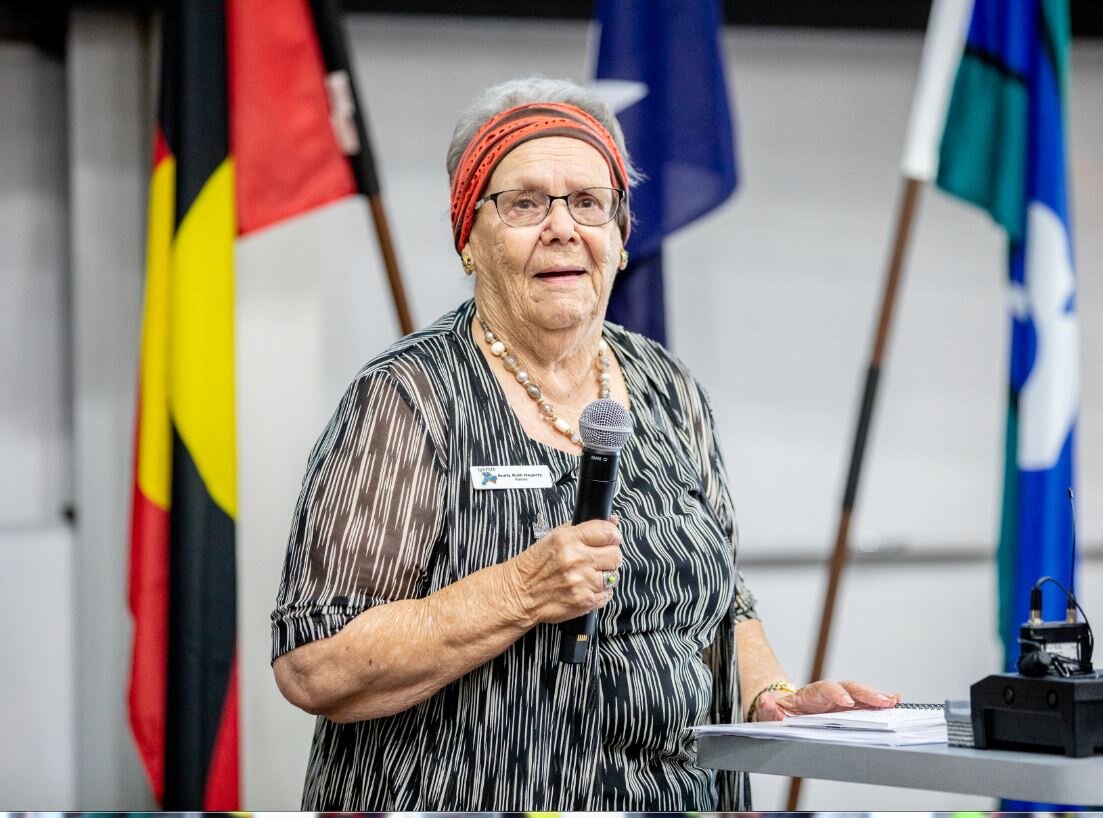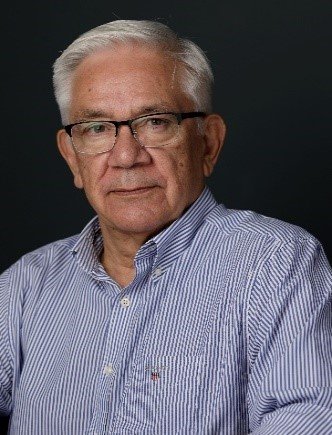A Perpetual and Positive Legacy for the Future
QATSIF was created to give Queensland's Aboriginal and Torres Strait Islander families increased educational choices and life opportunities. It is an independent, not-for-profit trust managed by The Public Trustee of Queensland and operates through a small Secretariat.
QATSIF provides educational scholarships of $500 per semester ($2000 across Years 11 and 12) to support eligible First Nations students with the educational costs of their senior studies. Each year, QATSIF contacts all Queensland schools (State, Catholic and Independent) to invite applications from their eligible Year 10 students. Our schools play a vital role in: supporting students and families to apply for a QATSIF scholarship; overseeing the administration of the QATSIF scholarship within their community; ensuring that scholarship funds are spent within the guidelines and that their students remain eligible to receive the scholarship; and in maintaining contact with their parents and carers.
The funds used by QATSIF for its programs and activities are drawn from the interest earned on the original capital provided to The Public Trustee to establish the Trust. Built from the labour of Aboriginal and Torres Strait Islander Queenslanders under now-repealed laws, preserving this capital means the toil of previous generations will have a direct benefit to the generations that follow. In this way, QATSIF will always stand as a permanent and positive legacy for the future.
QATSIF has a Board of Advice to make recommendations on how funds should be used to achieve QATSIF's objectives. The Board is comprised predominantly of Aboriginal, Torres Strait Islander and non-Indigenous people who are experts and leaders in their fields, including youth affairs, education, government, corporate, philanthropy, community affairs and finance.
The Board of Advice recommends allocation and prioritisation of QATSIF funds, giving it a strategic role supporting Aboriginal and Torres Strait Islander education in Queensland. It also partners with the wider community, private sector, philanthropic organisations and educational and financial sectors to create opportunities for young Aboriginal and Torres Strait Islander Queenslanders to promote both equity and cultural awareness.
